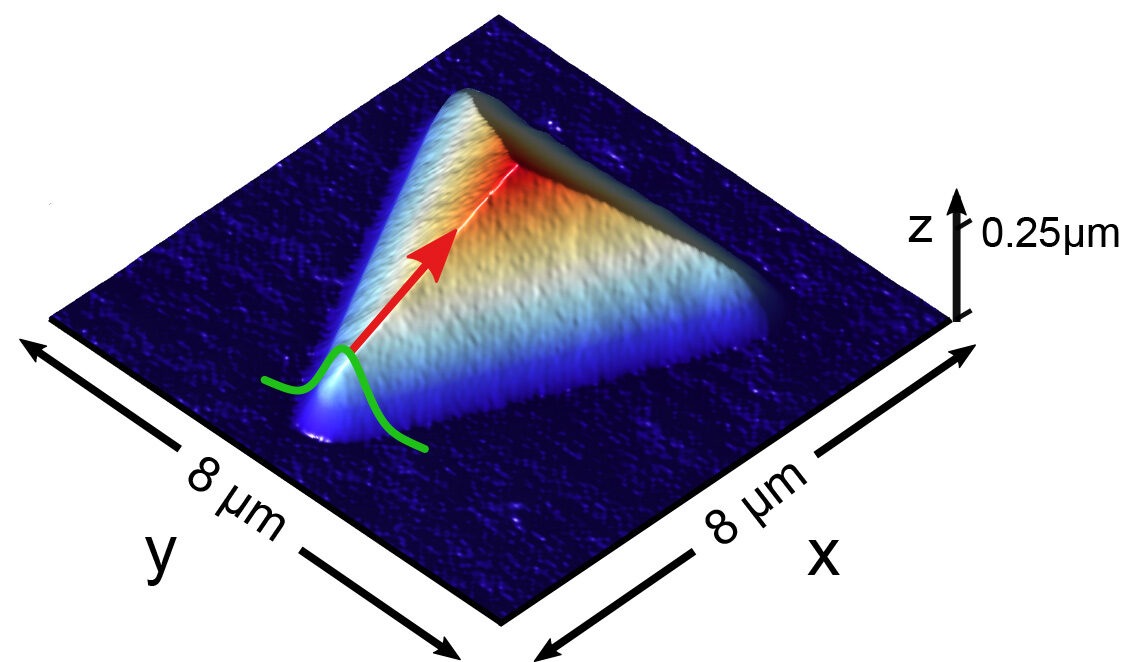
|
Getting your Trinity Audio player ready...
|
Quantum computing is a rapidly developing field with the potential to revolutionise many industries. As quantum computers become more powerful and affordable, they will likely play an increasingly important role, especially in tackling complex computational problems that are currently beyond the reach of classical computers. One of the key promises of quantum computing lies in its ability to perform certain calculations exponentially faster than classical computers.

In a significant step towards the realisation of room-temperature quantum computers, researchers at the University of Michigan have developed a method for transporting excitons. This breakthrough could pave the way for a new era of computing. This innovation, challenging conventional wisdom, including Einstein’s relation, opens avenues for developing highly efficient devices.
Excitons, peculiar electron-hole pairs devoid of a net electrical charge, find applications in diverse fields, from natural photosynthesis to technologies like OLED displays, LEDs, and solar cells. The University of Michigan researchers, led by Parag Deotare and Mackillo Kira, have harnessed the ability to manipulate excitons with precision, potentially enhancing the efficiency of existing devices and advancing into the realm of excitonics for computing.
The research presented a pyramid-shaped structure, similar to a wire, serving as a pathway for excitons. This pyramid design successfully addresses the inherent difficulty of mobilising excitons attributed to their absence of a net charge. It provides exceptional accuracy in conveying smaller excitons, which is crucial for prospective applications.
Using a laser, the operating principle involves creating a cloud of excitons at a designated corner of the pyramid’s base. A thin layer of tungsten diselenide semiconductor, only three atoms thick, covers the pyramid, modifying the energy landscape for excitons. The stretching of the semiconductor alters the energy gap between the valence and conduction bands, prompting excitons to migrate to the lowest energy state along the pyramid’s edge before rising to its peak.
While previous studies, led by Deotare, utilised acoustic waves to propel excitons through semiconductors, this pyramid structure offers a more refined transport mechanism. The lack of net charge in excitons, an advantage in avoiding energy losses, has historically posed challenges in their precise movement.
The study also challenges Einstein’s relation, revealing that its application to predict exciton mobility in complex scenarios may need to be revised. Defects in the semiconductor were found to act as traps, influencing the diffusion of excitons.
Mackillo Kira, Co-corresponding Author of the study, envisioned the potential for room-temperature quantum computing. Excitons, capable of encoding quantum information and retaining it longer than electrons in a semiconductor, could play a pivotal role in overcoming the challenges associated with the degradation of quantum information.
Beyond quantum computing, the team is exploring the integration of lightwave electronics to amplify the processing capabilities of excitonics. This research’s transformative nature extends its applications beyond computing, presenting opportunities for advancements in diverse technological fields.
Supported by the Army Research Office and the Air Force Office of Scientific Research, this pioneering work created the pyramid structure at the Lurie Nanofabrication Facility. With patent protection sought with the assistance of University of Michigan Innovation Partnerships, the team is actively seeking partnerships to bring this technology to market.
















